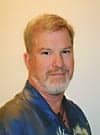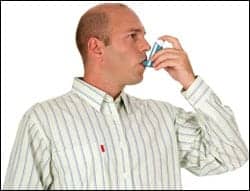 Michael Clark Michael Clark
BRAEBON Medical Corp, Ogdensburg, NY, known for its sensors, is now expanding to offer a full line of sleep products. Sleep Review spoke with Michael Clark, director of marketing and sales—North America, BRAEBON Diagnostics, about the company’s expansion. SR: How does BRAEBON plan to successfully move from a sensor-based company to a company that offers a full line of sleep products? Clark: From BRAEBON’s inception 7 years ago, the intention was to begin with sensors, develop a very unique amplifier system, and add the recording and analysis software. The result, released earlier this year, is the PURSUIT Advanced Sleep System, a complete polysomnography (PSG) diagnostic system. It was designed specifically for today’s business of sleep medicine in that it can record stationary, portable, ambulatory, and in home studies. Complementing this product was the introduction of PURSUIT Outcomes, a powerful database management package that BRAEBON acquired in 2004. Thus, long-term planning, creative product development, and recent acquisitions have propelled BRAEBON into a full line supplier of sleep products. SR: What other products is BRAEBON introducing as the company expands its product line? Clark: BRAEBON has recently introduced the SNOREByte, a medical dental oral appliance. This is a clinically proven alternative to CPAP for snoring and mild to moderate OSA. We have also formed a new PSG Accessory division headed by Randy Carruthers, who will direct all ULTIMA sensor and accessory sales including a new snore vibration sensor and Sleep Capnograph monitor. BRAEBON also has several new products near completion that will directly address other emerging market segments related to sleep medicine. These and other planned projects and strategic alliances will meet the needs of the changing market as it moves toward more efficient and cost-effective means to deal with sleep disorders. SR: How will BRAEBON continue to revolutionize the sleep diagnostic equipment business? Clark: BRAEBON took a look at the sleep market several years ago and came to the conclusion that many of the available diagnostic products were too complicated to use, too expensive, unreliable, and not well supported. This was partially due to the explosive growth in the sleep field that fueled demand, but for the most part, the complexity of PSG systems grew as manufacturers began to “out duel” each other with many software features that are not practical to use in a busy sleep lab. From this situation, BRAEBON moved forward and developed products that are easier to learn, easier to use, more reliable, more reasonably priced, and better supported. BRAEBON now offers an alternative, which we believe the sleep industry will move toward. |
 The Electrode Store, Enumclaw, Wash, an independent supplier of electromyography (EMG) and electroencephalography (EEG) electrodes, is celebrating 30 years of business. Sleep Review spoke with Tim Cooke, president, about his company’s success and electrodiagnostics. The Electrode Store, Enumclaw, Wash, an independent supplier of electromyography (EMG) and electroencephalography (EEG) electrodes, is celebrating 30 years of business. Sleep Review spoke with Tim Cooke, president, about his company’s success and electrodiagnostics.
SR: How is the use of electrodiagnostics advancing medical diagnostics? Cooke: This is an exciting time in electrodiagnostics because we’re on the verge of so many technological breakthroughs. Although the applications aren’t “electrode specific,” we have partnered with Topia Ventures to bring their software technology into medical diagnostics. Topia Ventures’ software would allow a hospital or laboratory to completely integrate all of its medical data collection and transmission devices via what they call a Managed Dynamic Componentized Infrastructure (MDCI). MDCI is a “mobile object”-based system that allows sensors, computers, and communications devices to exchange data in real time across different communications pathways, including simple voice to PDA; a single diagnostic instrument simultaneously to multiple e-mails, pagers, and PDAs; or even multiple patient sensing systems simultaneously to multiple PDAs or a central data collection point. It is essentially a global switchboard for data to be accessed by a variety of programs on a variety of systems. MDCIs will allow hospitals, laboratories, or clinicians to provide rapid, accurate diagnostic services without a significant investment in altering or increasing their current hardware or software. Topia is taking “telemedicine” two or three generations beyond where it is today. SR: How will the Electrode Store-Topia partnership translate into advancements in sleep medicine? Cooke: Most of our research and development has been in the defense, aerospace, and homeland security arenas, but we are beginning to see interest in developing clinical applications. Hopefully, within the next 24 months, an adaptation will be approved for clinical monitoring within the sleep industry. For example, an early application would allow a sleep laboratory to feasibly expand its practice and monitor patients limited by the memory capacity of its central computer rather than by the size of its facility, the quantity of its staff, or even the location of the patients relative to the laboratory itself. SR: How do you plan to continue your success? Cooke: We have new relationships with Dymedix Corp, Minneapolis; Sleepmate Technologies, Midlothian, Va; BRAEBON Medical Corp, Ogdensburg, NY; and SLP Inc, St Charles, Ill. These companies have really given us a jump-start into the sleep sensor market, complementing our long-time partnerships with companies like DO Weaver, Aurora, Colo, and Electro-Cap International, Eaton, Ohio. We’re now able to offer one-stop shopping, allowing our customers to pick their favorite sensors from their favorite manufacturers, combine those choices with our electrodes and other electrodiagnostic supplies, and get them all from a single supplier. Relationships like these will help to ensure our success in the sleep industry. |



